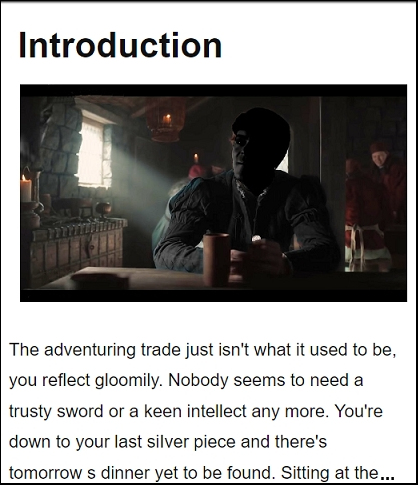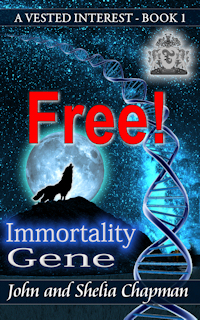Author - Who do you think you are?
In case you are wondering this is not a post about a genealogy program on TV; instead it's about author identities.
Your author name is your brand and it should be prominent on your books, your website, your blog and in your social media posts.
Why? Let me explain.
Let's suppose you've been hiding in a cave for the last 20 years and come across an awesome book called 'The Green Mile' by some author you've never heard of - Stephen King. You want more of his books so you go searching for them.
What do you look up 'The Green Mile' or 'Stephen King'?
Of course you look up 'Stephen King' because his next books won't be called 'The Green Mile'.
If you go looking on Internet for Stephen King at Amazon you'll see:

Notice that his name is the most prominent text on each book?
Many new authors make the mistake of making their titles the most prominent text.
- Search for thegreenmile.com and you find the domain is nothing to do with King
- Search Facebook and you'll find lots of unofficial pages only apart from those for the film
- Search Twitter for @TheGreenMile and you get a page for Joseph Stewart-Paul who took the name in 2009 and hasn't tweeted yet.
If on the other hand you search for Stephen King you'll find:
- He has a website http://stephenking.com/
- He has a Facebook page - the checkmark next to his name confirms it's 'the' Stephen King

- He has a twitter page https://twitter.com/StephenKing. Again the checkmark tells you this is 'the' Stephen King.

If you find this guide useful...
Can you help me out?
If you find these pages useful you can return the favour by downloading a FREE ebook from Amazon - even if you don't read it, it will help our rankings! I think you'll probably like it though.
It's the first book of a series of 9 books (so far) which tell the story of how life on Earth was saved from a cataclysmic extinction when a rogue planetoid collides with Earth in 7141. This first book deals with how humanity was made immortal, giving us the incentive to do something about an event so far in the future.
Take a touch of humour, add some genetic science and nanotechnology. Steep with conspiracy and stir in murder and despair. Season with romance between three people in a secret location. Garnish with morality.
The result is 'Immortality Gene', the first in a novel series by John and Shelia Chapman. The ebook of book 1 is FREE and available at multiple retailers
Pen Names
But what if I want to use a pen name?
Ask yourself 'why?'
- Are you ashamed of your name — is it 'Imani Diot' or 'Adolph Hittler'?
- Is your name something like 'Grzegorz Brzęczyszczykiewicz'This is a real Polish name and featured in a film as unpronouncable - here and impossible for most English speaking people to pronounce?
- Is your name already made famous by some celebrity? Why not make use of this?
- Are you publishing something you are ashamed of?
- Are you publishing something that might influence opinions in the wrong way? Isaac Asimov once wrote a short story in the style of a chemistry thesis. 'The Endochronic Properties of Resublimated Thiotimoline.' He asked for it to be published under a pen name since he was due to attend his final chemistry doctorate interview and feared it might adversely influence the panel's decision. To his horror it went out under his own name and was widely circulated. At his final interview for his doctorate it wasn't mentioned until the last question, "Now Doctor Asomov what can you tell us about The Endochronic Properties of Resublimated Thiotimoline?"
Despite the lack of need for pen names some authors have used them:
- Isaac Asimov: Paul French.
- J.K. Rowling: Robert Galbraith.
- Michael Crichton: John Lange, Jeffery Hudson and Michael Douglas.
- Stephen King: Richard Bachman.
- Charles Dodgson: Lewis Carroll
- Samuel L. Clemens: Mark Twain
- François-Marie Arouet: Voltaire
- Mary Ann Evans: George Eliot
Each had a good reason for writing under a pen name but in general - stick to your own name since it makes tax so much easier if your novels take off.
Or maybe a free online interactive adventure story?
Back in 1982 early text only adventure games were being written for home computers. One such game was 'Castle of Riddles' written by Peter Killworth and published by Acornsoft. Now it's been re-written and greatly expanded with added images and sound. Play it on your computer, tablet or even a phone.
Check it out at https://jaydax.co.uk/corr

As an Amazon Associate, I earn from qualifying purchases.
